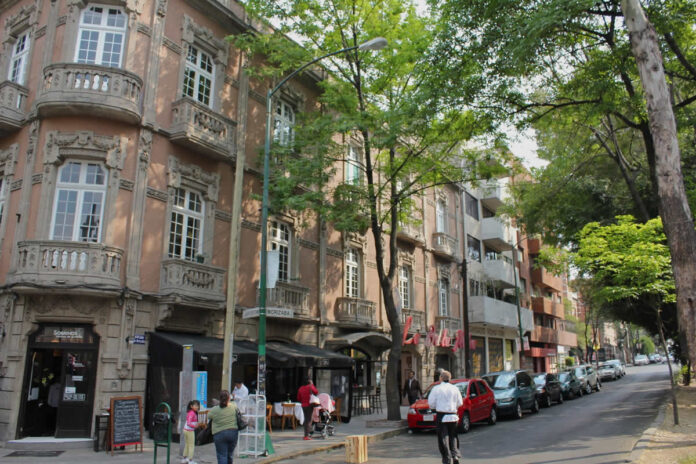Due to the demand from foreigners, the rental price in the Condesa neighborhood went from 17,851 to 28,542 pesos per month
In November 2022, Alexandra Dunnet announced, through her Twitter account, that the building in the Condesa neighborhood of Mexico City (CDMX) where she lived had been evicted.
She was the last tenant of one of the 18 apartments of the property, before the rest were published on the Airbnb short-term rental platform, with a rental price of 85,000 pesos per month, when she paid about 10,000 pesos per month. .
For a few months now, the inhabitants of the capital have had to face gentrification, since housing prices, both for purchase and for rent, have increased to the point of expelling the local inhabitants.
Although it is not new, the term “gentrification” became popular months ago, when thousands of foreigners chose Mexico as an ideal destination to work remotely.
According to the Tasvaluo platform, it is possible to point out that this phenomenon frequently occurs in highly desired places to live, where the urban profile with affordable housing is replaced by real estate investments that expel the original population.
Currently, Amsterdam street lives up to its name and seems to be a territory foreign to Mexico, where the Spanish language is rare and dozens of foreigners exercise, work and walk.
In the 23 years that Alejandra Kiewek has lived on this street, she has been close to people of other nationalities. She assures that the Condesa neighborhood is open to new cultures, but the dynamics with digital nomads are perceived differently.
“This area is very inclusive with foreigners. The problem is not that they use this space to live, but that they are just passing through. Contrary to us Mexicans, they don’t make much effort to blend in,” commented the also representative of the Community Participation Commission (Copaco).
The effect on income
According to official figures, from January to November 2022, the volume of foreigners with temporary or permanent residence in Mexico City increased 23.8%, reaching a total of 43,868 foreigners.
Wanting to take advantage of this dynamic, the capital’s government signed an agreement with Airbnb to capitalize on the economic spillover that digital nomads generate, which is estimated at more than 3 billion dollars a year.
The agreement unleashed a series of disagreements, since, in addition to the changes in social coexistence, it would have other consequences, such as a greater increase in the value of housing and the displacement of local inhabitants.
According to the Inmuebles24 portal, the rental price of apartments in the Condesa neighborhood increased 66% in the last 24 months.
The average monthly income went from 16,043 pesos in May 2021 to 26,740 pesos in the same month of 2023.
Francisco Andragnes, general director of Homie.mx, explained that, although the increase in rental prices responds to general inflation, it also impacts the demand of foreigners and digital nomads.
“(The issue) was complicated by the increase in homes offered on Airbnb. There are areas that have more apartments for rent on this site than in the traditional market”, commented the specialist.
Seeing the demand from foreigners, the interest of the owners of residential buildings has been on the rise, who have chosen to evict local tenants to serve those who earn in euros or dollars.
In the streets surrounding Kiewek’s home, at least six properties have been converted into Airbnb or hotels. His local neighbors have not commented so far, but he believes that it will not be long before that.
“Some still do not measure the effect of all this, but I think they will pronounce themselves in the not too distant future. Everything has become more expensive: restaurants, shops and, obviously, housing”, said the representative of Copaco.
Daniela Sánchez, coordinator of the Legal Clinic on the Right to Housing, explained that a commodification process has taken place in Mexico City that leaves housing as an asset to speculate and obtain profits, thus separating it from its vital role: provide people with a roof and security.
Thus, gentrification is observed in the transformation of neighborhoods such as Juárez, Roma or Condesa, where the eviction of dozens of families has been documented. The capital government only promised to analyze the situation and study a possible regulation.
Source: El Economista






